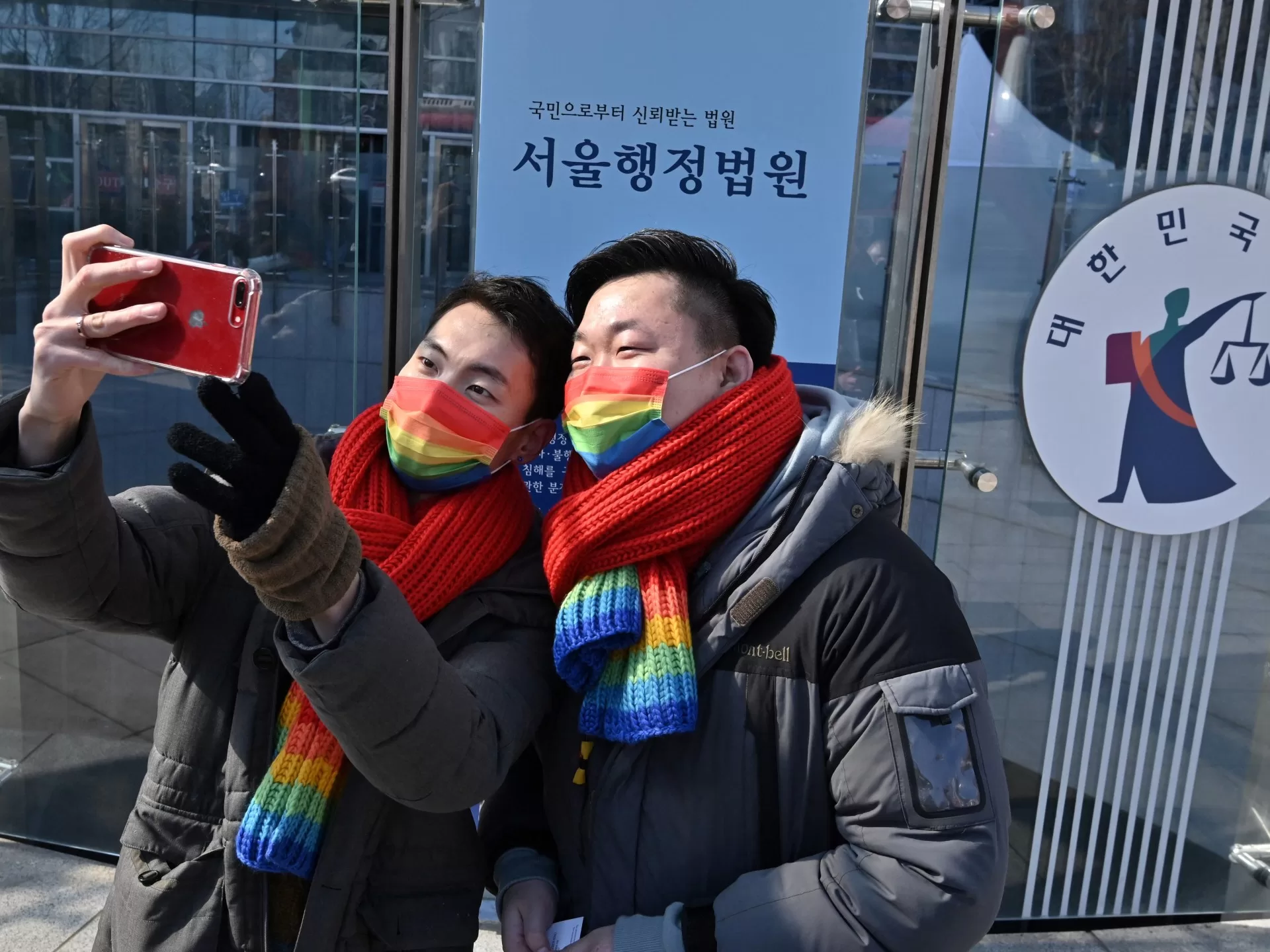Activists welcome the ruling but systemic discrimination persists in the country where gay marriage is not legally recognised.
South Korea’s top court has said that the state must provide health insurance for same-sex partners.
The Supreme Court delivered the landmark ruling on Thursday, opening the way for common-law couples of the same sex to now register as dependents on their partner’s health insurance.
Chief Justice Jo Hee-de said that denying same-sex couples such benefits because of gender constitutes discrimination based on sexual orientation.
“It is an act of discrimination that violates human dignity and value, the right to pursue happiness, freedom of privacy and the right to equality before the law, and the degree of violation is serious,” Jo said.
The case was brought by So Seong-wook and Kim Yong-min, a cohabiting gay couple whose marriage in 2019 is not considered legal under South Korean law, which does not recognise same-sex marriage.
So sued the National Health Insurance Service (NHIS) because it terminated benefits for his partner – registered as a dependent – after discovering they were a gay couple.
Thursday’s ruling upholds a decision last year, in which the Seoul High Court found in favour of the couple, mandating that the NHIS reinstate the dependent benefits.
The service, which grants spousal coverage benefits to common-law partners, appealed the decision, escalating the case to the Supreme Court.
Amnesty International said the ruling was “a historic victory for equality and human rights in South Korea”.
“While this decision is a major milestone, the case itself is a sobering reminder of the lengthy judicial processes that same-sex couples must endure to secure basic rights that should be universally guaranteed,” the rights group said in a statement.
While the country does not recognise same-sex marriages, gay relationships are not criminalised. But LGBTQ people tend to live largely under the radar.
Activists have long emphasised the need for legislation against discrimination on the basis of sexual orientation.
A much-discussed anti-discrimination law has languished in the South Korean parliament for years, due to a lack of consensus among MPs.
